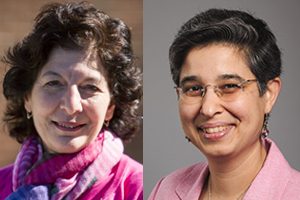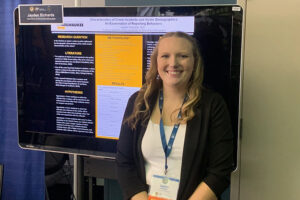The field of engineering has a hard time attracting and retaining women.
Two UWM faculty members just published research looking at the reasons why in the May issue of Frontiers of Psychology.

The authors were Nadya Fouad, distinguished professor and Mary and Ted Kellner Endowed Chair of Educational Psychology, and Romila Singh, associate professor of business. Co-authors were Min Wan of Texas State University and Wen-hsin Chang, who was then a graduate student at UWM.
The researchers analyzed the survey responses of 1,464 women who left the profession. Their basic findings showed the key factors were:
- Poor and/or inequitable compensation, poor working conditions, inflexible and demanding work environment that made work-family balance difficult;
- Unmet achievement needs that reflected a dissatisfaction with effective use of their math and science skills;
- Unmet needs with regard to lack of recognition at work and adequate opportunities for advancement.
Engineering has one of the highest rates of attrition among the STEM (science, technology, engineering and mathematics) fields, according to the study.
The turnover rate for women from engineering fields is higher than for men despite increased efforts to improve recruiting and retention, the authors wrote.
Their research was designed to help understand the factors that affect women’s decisions so that effective intervention programs can be developed, according to the authors.
Fouad and Singh have collaborated on a number of studies investigating what attracts women and minorities to science fields and what influences decisions to leave. They were awarded two large National Science Foundation grants to investigate engineers’ persistence and turnover decisions, which culminated in a groundbreaking 2012 report, “Stemming the Tide.”






